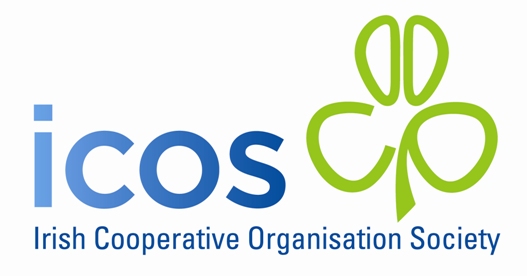ICOS urges Minister to renegotiate damaging derogation decision

Considerable strain, worry and anxiety at dairy farm level – ICOS
At a meeting in Plunkett House in Dublin, a delegation of co-op leaders met with the Minister for Agriculture, Food and the Marine, Charlie McConalogue TD, on the future of Ireland’s Nitrates Derogation.
The ICOS delegation was led by Niall Matthews, ICOS Dairy Committee Chair, Edward Carr, ICOS Vice President and outgoing ICOS President James O’Donnell.
The ICOS delegation underlined to the Minister the importance of the derogation to the future of Ireland’s dairy sector, which contributed to annual exports worth in value terms in excess of €6.8 billion in 2022.
The co-op body conveyed strongly to the Minister the damaging uncertainty created by the review clause which includes the possible reduction in the maximum stocking rate, depending on trends in water quality. This is causing considerable strain, worry and anxiety at dairy farm level according to ICOS.
ICOS President James O’Donnell called on the Minister “to directly intervene and step-up engagement with the European Commission with the clear objective of maintaining the maximum stocking rate of 250kg N/ha. “In doing so, the Government must communicate clearly to the EU Commission the serious socio-economic implications of the review decision to reduce the maximum stocking rate and the strong commitment and actions the dairy sector is taking to improve water quality.”
ICOS Vice-President Edward Carr said, “The pace of change is significant in relation to sustainability and co-ops, along with our farmer members, are travelling on a journey together and making real progress. As a dairy industry collectively, we are heavily resourcing farm sustainability, as evidenced by the doubling in the number of co-op ASSAP advisors from 10 initially employed across the sector to 23 now employed to support and advise farmers in relation to water quality.”
ICOS Dairy Committee Chair, Niall Matthews said, “It’s vital that the range of new measures recently introduced on derogation farms are given the time and opportunity to be implemented and their impact on water quality assessed. This is only fair and reasonable. He added “cow banding has increased pressure on the land market to unsustainable levels, with consequences not only for the dairy sector, but also for other livestock and tillage farmers. Any new proposals that are brought forward must avoid overheating the land market any further.”